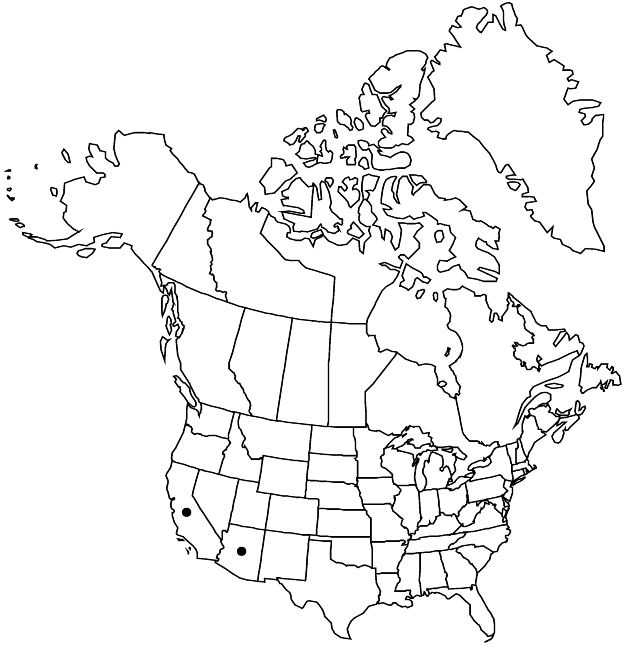Difference between revisions of "Argythamnia claryana"
Fl. Calif. 2: 419. 1936.
FNA>Volume Importer |
imported>Volume Importer |
||
| Line 55: | Line 55: | ||
|publication year=1936 | |publication year=1936 | ||
|special status=Endemic | |special status=Endemic | ||
| − | |source xml=https:// | + | |source xml=https://bibilujan@bitbucket.org/aafc-mbb/fna-data-curation.git/src/bb6b7e3a7de7d3b7888a1ad48c7fd8f5c722d8d6/coarse_grained_fna_xml/V12/V12_911.xml |
|genus=Argythamnia | |genus=Argythamnia | ||
|species=Argythamnia claryana | |species=Argythamnia claryana | ||
Revision as of 20:12, 27 May 2020
Herbs or subshrubs, perennial, monoecious, to 10 dm. Stems erect, hairy, hairs simple and malpighiaceous. Leaves: stipules persistent, elliptic, lanceolate, or subulate, sometimes divided in 2 unequal segments, 1.7–2.5 mm, margins with conic glands; petiole 2–6 mm; blade elliptic, 0.8–1.9 × 0.4–1.2 cm, margins serrate, with conic glands, surfaces hairy, hairs simple and malpighiaceous. Inflorescences bisexual, to 0.5 cm; bracts ovate, 2–3 mm, margins with conic glands. Flowers without pink dye when wetted. Staminate flowers: sepals lanceolate, 2.5–3.5 × 0.4–0.5 mm; petals elliptic, 3–4 × 0.8–1.2 mm, adnate to androphore; nectary glands narrowly elliptic, oblong, or ovate, 0.3–0.7 × 0.2–0.3 mm, free from androphore, glabrous; stamens 10, staminodes 3–5, glabrous. Pistillate flowers: sepals lanceolate to ovate, 2.5–4.5 × 0.8–1.3 mm, margins with conic glands; petals 5, elliptic, 2–3 × 0.7–1.2 mm, margins with glandular teeth; petals elliptic, 2–3 × 0.7–1.2 mm; nectary glands ovate to linear, 0.3–0.5 × 0.2–0.5 mm, glabrous; ovary hispidulous; styles 1–2 mm, glabrous; stigmas flattened. Capsules 3–4.5 mm, hispidulous. Seeds 2.5–3 mm, with shallow depressions, lightly striate.
Phenology: Flowering Feb–Apr and Oct–Nov.
Habitat: Desert scrub, rocky soils, basaltic hills.
Elevation: 60–900 m.
Discussion
Argythamnia claryana is known with certainty only from very arid regions of southeastern California and southwestern Arizona but also is expected in Baja California. I. L. Wiggins (1980) reported A. adenophora from northeastern Baja California, but considering that these two species are very similar and that Wiggins (in F. Shreve and Wiggins 1964) previously treated A. claryana as a synonym of A. adenophora, it is quite possible that this report actually refers to A. claryana. Unfortunately, voucher specimens that confirm the occurrence of either of these species in Baja California have not been found. Reports from Nevada appear to be based on misidentified specimens.
Selected References
None.
